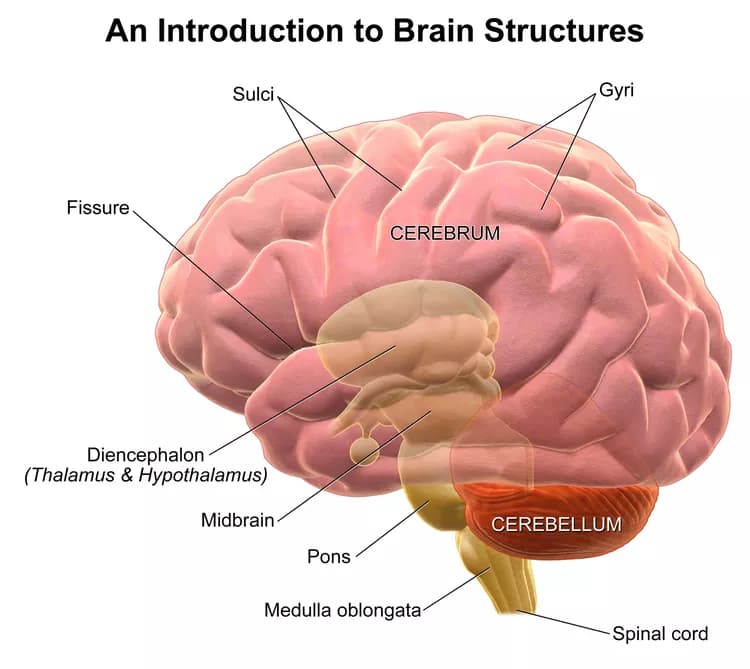
Brain Astrocytes Linked To Alzheimer's Disease
Astrocytes, the supporting cells of the brain, could play a significant role in the pathogenesis of Alzheimer's disease (AD), according to a new study from the University of Eastern Finland. This is the first time researchers discovered a direct association between astrocytes and AD. Published in Stem Cell Reports, the study investigated the brain cell function of familial AD patients by using stem cell technologies.
Alzheimer's disease is the most common dementia type, with no treatment to slow down the progression of the disease currently available. The mechanisms of AD are poorly understood, and drug therapy has focused on restoring the normal function of neurons and microglia, i.e. cells mediating brain inflammation. The new study shows that astrocytes, also known as the housekeeping cells of the brain, promote the decline of neuron function in AD. The findings suggest that at least some familial forms of AD are strongly associated with irregular astrocyte function, which promotes brain inflammation and weakens neurons' energy production and signalling.
Astrocytes are important brain cells, as they support neurons in many different ways. Astrocytes are responsible, for example, for the energy production of the brain, ion and pH balance, and they regulate synapse formation, the connections between neurons. Recent evidence suggests that human astrocytes are very different from their rodent counterparts and thus, it would be essential to use human cells to study human diseases. However, the availability of human astrocytes for research has been very limited. The study carried out at the University of Eastern Finland used the induced pluripotent stem cell technology, which enables the generation of pluripotent stem cells from human skin fibroblasts. These induced stem cells can then be further differentiated to brain cells, e.g. neurons and astrocytes, with the same genetic background as the donor had.
The study compared astrocytes from familial AD patients carrying a mutation in the presenilin 1 gene to astrocytes from healthy donors, and the effects of these cells on healthy neurons were also analysed.
The researchers found out that astrocytes in patients with Alzheimer's disease produced significantly more beta-amyloid than astrocytes in persons without AD. Beta-amyloid is a toxic protein that is known to accumulate in the brains of AD patients. In addition, AD astrocytes secreted more cytokines, which are thought to mediate inflammation. AD astrocytes also showed alterations in their energy metabolism which likely led to increased production of reactive oxygen species and reduced production of lactate, an important energy substrate for neurons. Finally, when astrocytes were co-cultured with healthy neurons, AD astrocytes caused significant changes on the signalling activity of neurons when compared to healthy astrocytes.
This study was the first to show that astrocytes in patients with Alzheimer's disease manifest many pathological changes typical of AD. Astrocytes could thus play a key role in the early stages of the disease and changes in the function of these cells could lead to neurodegeneration.
"The induced pluripotent stem cells we used in this study proved to be extremely useful in disease modelling, and they could offer an excellent platform for drug discovery and testing new therapeutic targets for Alzheimer's disease in the future," says Early Stage Researcher Minna Oksanen, the lead author of the study.
Materials provided by University of Eastern Finland. Note: Content may be edited for style and length.
Disclaimer: DoveMed is not responsible for the accuracy of the adapted version of news releases posted to DoveMed by contributing universities and institutions.
References:
Minna Oksanen, Andrew J. Petersen, Nikolay Naumenko, Katja Puttonen, Šárka Lehtonen, Max Gubert Olivé, Anastasia Shakirzyanova, Stina Leskelä, Timo Sarajärvi, Matti Viitanen, Juha O. Rinne, Mikko Hiltunen, Annakaisa Haapasalo, Rashid Giniatullin, Pasi Tavi, Su-Chun Zhang, Katja M. Kanninen, Riikka H. Hämäläinen, Jari Koistinaho. (2017). PSEN1 Mutant iPSC-Derived Model Reveals Severe Astrocyte Pathology in Alzheimer's Disease. Stem Cell Reports. DOI: 10.1016/j.stemcr.2017.10.016
Related Articles
Test Your Knowledge
Asked by users
Related Centers
Related Specialties
Related Physicians
Related Procedures
Related Resources
Join DoveHubs
and connect with fellow professionals

0 Comments
Please log in to post a comment.